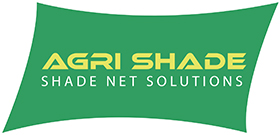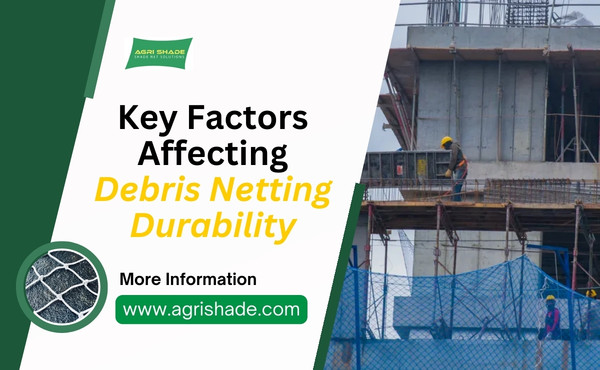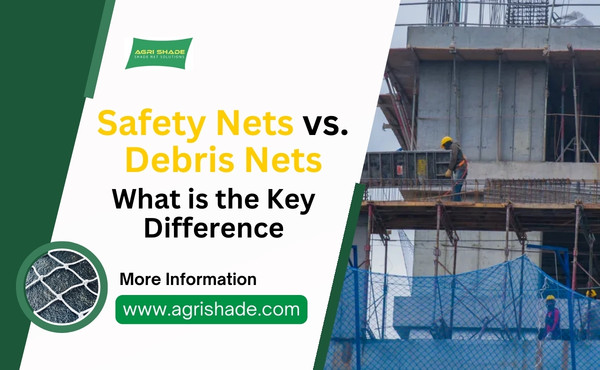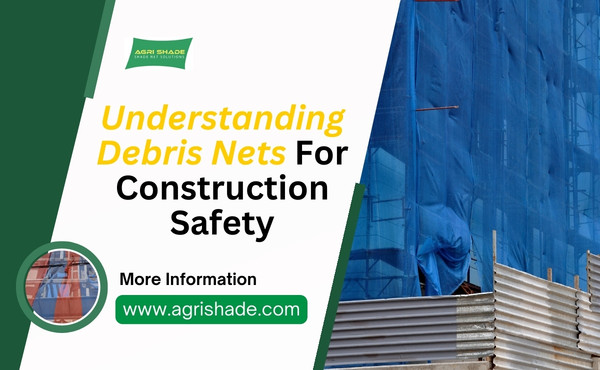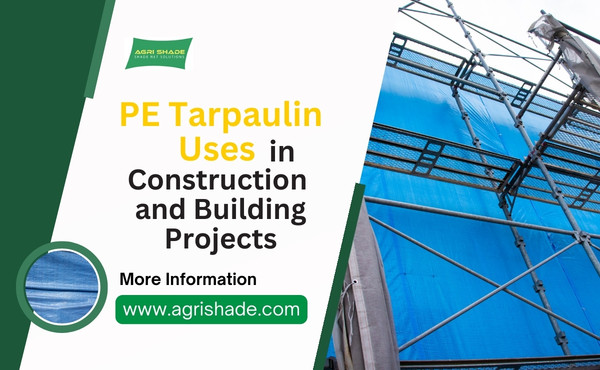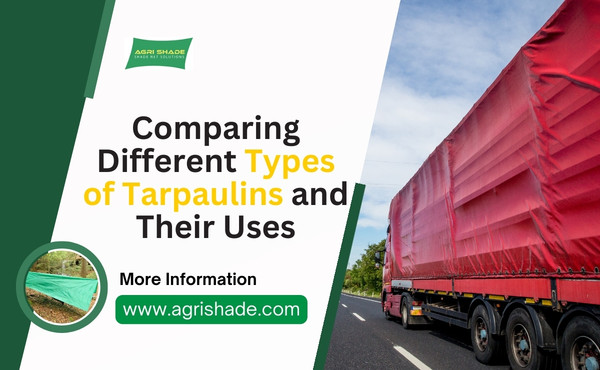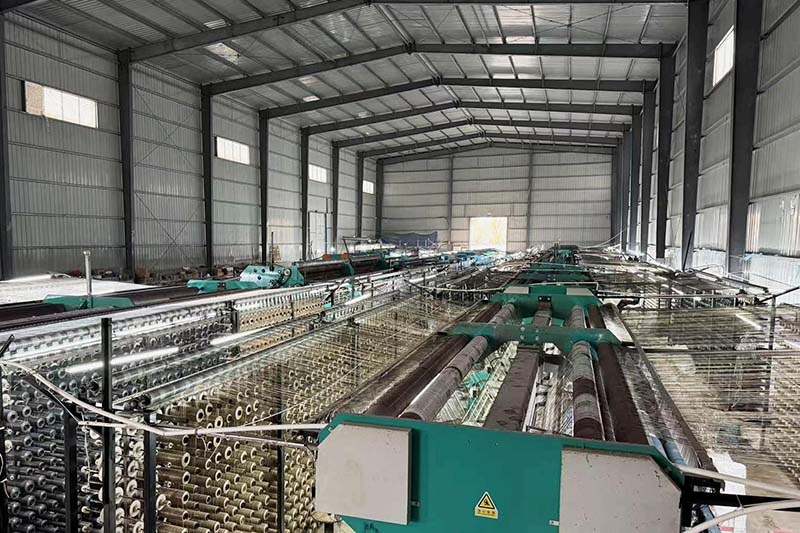Truck tarps are essential tools in logistics, hauling, and transportation. They protect cargo from weather, road debris, UV rays, theft, and more. But not all tarps are equally good. One material has become very common—and for good reasons: Polyethylene (PE).
In this article, we’ll dive deep into why PE is often the preferred material for truck tarps, compare it with alternatives, and point out what to watch out for so your tarp choice gives you maximum value.
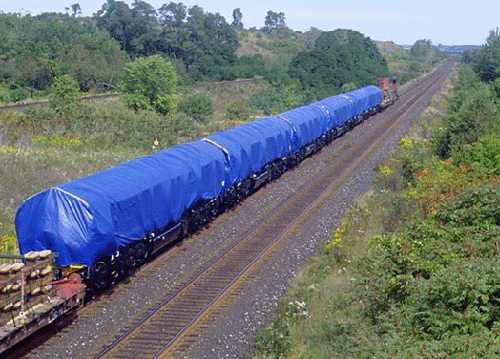
What Is Polyethylene (PE)?
Polyethylene is a type of plastic polymer. In tarps, what usually happens is that woven HDPE (high-density polyethylene) fibers make up a base cloth, and then that cloth is coated (on one or both sides) with LDPE (low-density polyethylene) or a PE film. Some are single-coated, some double.
PE tarps can come in various weights (measured in grams per square meter, GSM) and thicknesses. Light duty PE tarps might be in the 80-200 GSM range; HDPE woven versions are stronger. The heavier and more densely woven the base cloth, the more resistance to tear and wind.
Key Properties of Polyethylene Truck Tarps
Superior Waterproof Protection
Poly tarps deliver outstanding waterproof performance. Manufacturers design poly tarps with coatings that block water completely. This waterproof barrier prevents cargo from getting wet during rain or snow.
Polyethylene tarps also stop mildew and rot. The waterproof properties keep moisture out, which protects both the tarp and the load. Truckers trust poly tarps for superior weather protection in all seasons.
Lightweight and Easy to Handle
Poly tarps weigh less than many other materials. This lightweight design makes them easy to lift, fold, and install. Drivers can quickly cover or uncover loads without extra help.
The light weight of poly tarps also helps with storage. Fleet managers can stack and transport poly tarps with ease. This feature saves time and effort on the road.
UV and Weather Resistance
Poly tarps feature coatings that block harmful UV rays. These coatings protect the tarp from sun damage and fading. Polyethylene offers superior weather protection by standing up to heat, cold, and wind.
Poly tarps keep their strength and flexibility in changing weather. The weather-resistant properties make them a smart choice for outdoor use. Poly tarps last longer because they resist sun and weather damage.
Tear and Puncture Resistance
Poly tarps have a woven structure that adds durability. This design resists tearing and punctures from sharp objects. Poly tarps maintain their waterproof protection even after rough use.
Polyethylene tarps shield cargo from shifting loads and debris. The durability of poly tarps ensures reliable performance trip after trip. Poly tarps outperform many other materials in tough conditions.
Cost-Effectiveness
Poly tarps offer excellent cost-effectiveness for truck owners. The affordable price of poly tarps makes them a popular choice. Poly tarps last longer, so they reduce replacement costs over time.
Fleet managers see savings with poly tarps because of their durability. The combination of low price and long life means better value. Poly tarps provide superior weather protection without breaking the budget.
Easy Maintenance
Poly tarps require little maintenance. The waterproof surface wipes clean with water or mild soap. Poly tarps resist stains, mildew, and rot, so they stay in good condition.
Drivers spend less time cleaning and repairing poly tarps. The easy care adds to the overall cost-effectiveness. Poly tarps remain a reliable choice for busy trucking operations.
Polyethylene vs. PVC vs Canvas
Truck tarp material directly affects cargo protection, handling convenience, and service life. The three main options are polyethylene (PE), PVC, and canvas, each with distinct performance characteristics.
Polyethylene (PE)
PE truck tarps are made from woven HDPE coated with polyethylene film. They are lightweight, waterproof, and cost-effective, suitable for most transport applications. The material provides good UV protection and is easy to clean. However, it can tear under sharp stress and may harden in low temperatures.
Common use: general freight, agricultural products, and construction materials.
PVC (Vinyl)
PVC tarps feature a polyester base with vinyl coating, offering high tensile strength, flexibility, and long service life. The material maintains performance in extreme weather and provides complete waterproof sealing. Its drawbacks include heavier weight, higher cost, and lower environmental friendliness.
Common use: heavy-duty transport, machinery protection, and long-distance hauling.
Canvas
Canvas tarps are produced from cotton or polyester-blended fabric. They are breathable and durable, preventing condensation and protecting sensitive goods. After treatment, the fabric also resists heat and sparks. Canvas is not completely waterproof and requires regular maintenance to prevent mildew.
Common use: wood, textile, and temperature-sensitive cargo.
| Feature | Polyethylene | PVC | Canvas |
|---|---|---|---|
| Waterproof | Excellent | Excellent | Moderate |
| Weight | Light | Heavy | Heavy |
| UV Resistance | Good | Excellent | Fair |
| Cost | Low | High | Medium |
| Maintenance | Easy | Easy | Regular |
| Lifespan | Moderate | Long | Moderate |
Summary
Polyethylene offers an economical balance of weight and protection.
PVC provides superior durability for demanding environments.
Canvas remains valuable for breathable, heat-resistant applications.
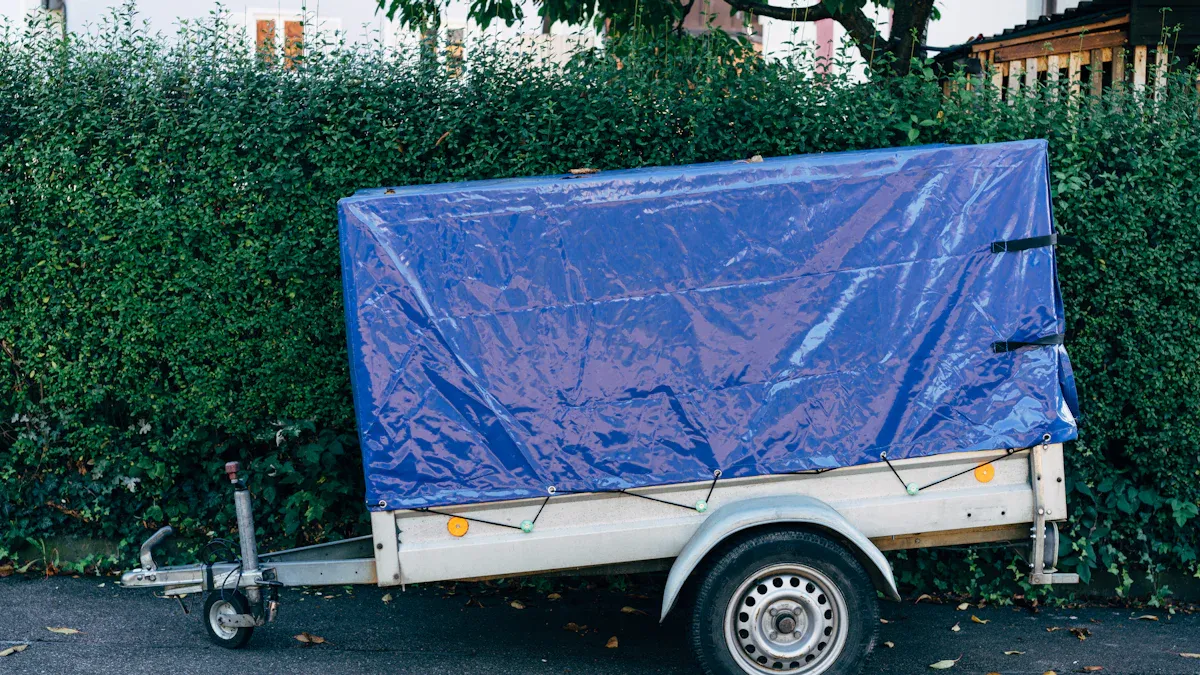
Environmental and Recyclable Benefits
Polyethylene (PE) tarps provide strong performance while reducing environmental impact. As a thermoplastic material, PE can be recycled and reused without losing its core properties.
During production, PE requires less energy and fewer chemical additives, which helps lower overall emissions. The material contains no plasticizers or heavy metals, allowing safer handling and easier recycling at the end of its service life.
Used PE tarps can be reprocessed into new plastic products such as films, sheets, or industrial packaging, minimizing waste sent to landfills. Many manufacturers have adopted closed-loop recycling systems to recover and reuse polyethylene materials, further enhancing sustainability across the supply chain.
In addition, the lightweight nature of PE tarps contributes to energy efficiency during transportation. Reduced weight means lower fuel consumption and fewer carbon emissions across logistics operations.
Patner With Agrishade For High Quality PE Truck Tarps
Agrishade is a professional manufacturer specializing in high-quality polyethylene (PE) tarps. Known for robust performance, reliable production, and long-lasting durability,
Agrishade delivers tarps that withstand harsh weather and heavy-duty use. Our pe truck tarps come in a wide range of sizes, thicknesses, and colors. These tarps are also manufactured with extra features like reinforced edges or UV-resistant coatings.
Customers can select the tarps that fit specific truck beds or cargo types. This customization ensures the best protection for every load.
